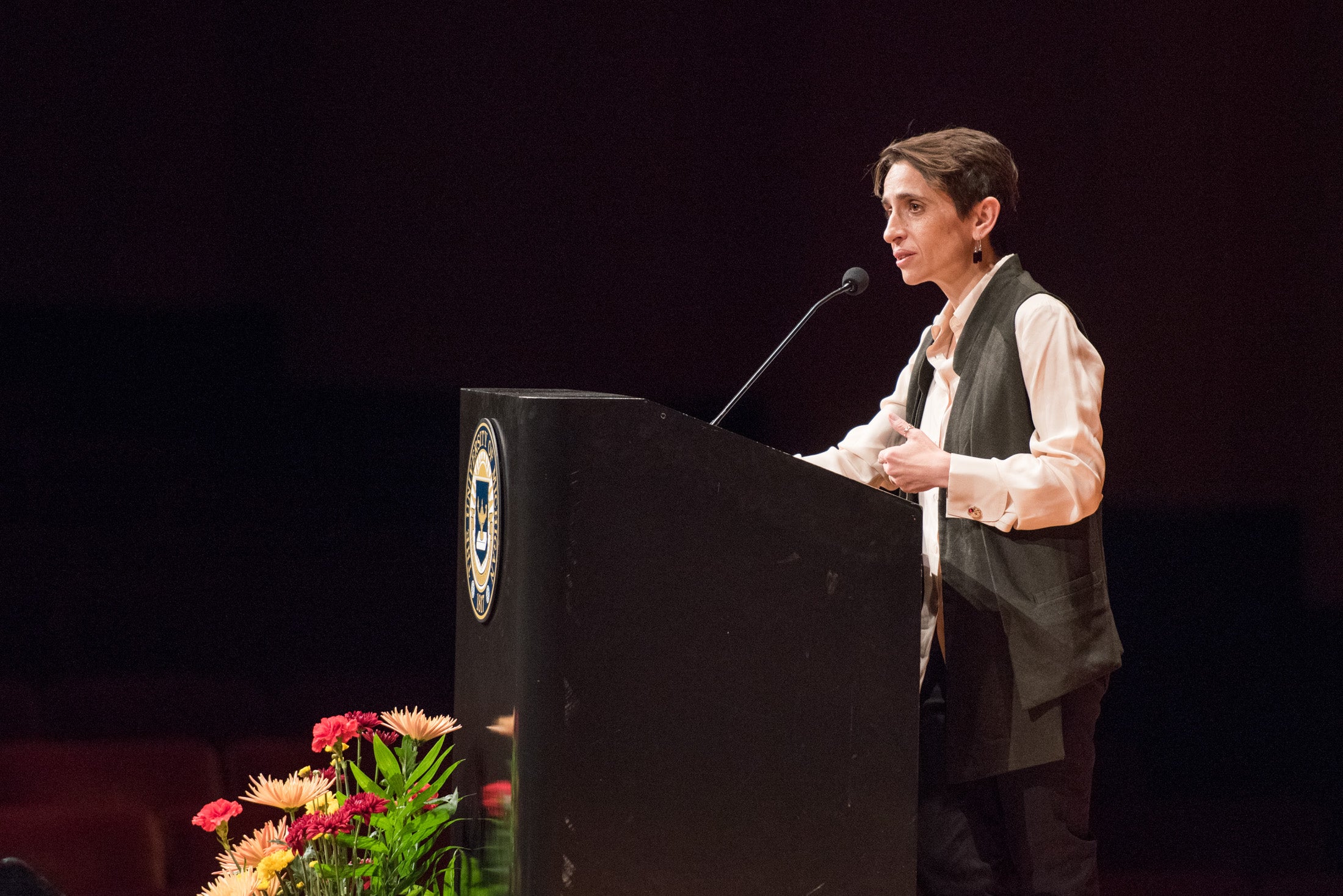On Tuesday President Mark Schlissel awarded the Wallenberg Medal to Masha Gessen, Russian American author, journalist and activist. The University’s most distinguished award, the medal commemorates Raoul Wallenberg, Michigan Class of 1935, whose actions in Budapest, Hungary during World War II saved the lives of tens of thousands of Jews. In presenting the Medal, President Schlissel said that “the lives he saved, and the generations he inspires, are strong reminders of one our most closely held values: that one person can make a difference. Wallenberg’s legacy as it lives on today makes me very proud to be part of the Michigan community.”
Gessen is a prominent journalist whose work appears regularly in The New York Times, The New Yorker, and many other publications, and whose writing includes books about Putin’s Russia, the protests of Pussy Riot, a Russian feminist art collective, and the background story of the Tsarnaev brothers who were responsible for the Boston marathon bombings. A courageous and outspoken critic of the re-imposition of totalitarian structures in Russia and a strong advocate for LGBTQ rights, Gessen, her partner and their family were forced into exile two years ago and now live in New York.
Gessen first learned about Wallenberg from her mother. “The first time I read about Raoul Wallenberg, I read a phrase that I have remembered for the rest of my life. ‘This is a man who tried to save the world and whom the world failed to save.’ The phrase was written by my mother. She was a journalist and literary critic who was probably the first person to write about Raoul Wallenberg in Russia. Today, I want to actually focus not on the part where one person can make a difference, but on the part where the world failed to save him. Today I want to talk about the victims.”
She spoke of the dangers of misunderstanding the regime that Vladimir Putin has installed and the suffocation of public space and public opinion in Russia. “There are a lot of people in Russia who are in actual danger. I’m in a luxurious position because I live here. There are people doing work on the ground in Russia that you’ve never heard of. There are people who take such great risks every day and we don’t even know about them.”
Gessen concluded the evening by telling how she first encountered Ann Arbor during the Soviet era as two words printed on the spine of books that constituted the “lost literature” of twentieth-century Russia—fiction and poetry that had been repressed in the Soviet Union but were reproduced in Ann Arbor by Carl and Ellendea Proffer, scholars of Russian literature, and clandestinely re-introduced to Russia. “When growing up, they were the best books in the house. They had a little horse carriage as a logo and the words ‘Ann Arbor’ underneath, which I thought was some magical place where the best books came from. The words ‘Ann Arbor’ continued to have this magical ring to me, and I have never been able to come here until now.”

